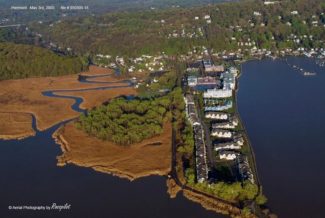by Marthe Schulwolf
Addison Chappell’s March 3 column, “How Lawn Pesticides Impact Health and Environment,” alerted us to the dangers of these over-used and under-regulated toxic chemicals and to the “greenwashing” by the pesticide industry that tries to normalize their use.
There is nothing normal about using chemicals developed for warfare to kill harmless plants like clover and dandelions. Did you know that 2,4-D (a commonly used herbicide) was a component of Agent Orange? As soon as something like that becomes well-known, the companies come up with newer chemicals, promising that they are less dangerous, and implying that EPA registration guarantees “safety.” Nothing could be farther from the truth. EPA registration just provides a number to identify a specific product. EPA trusts the manufacturers to submit safety data and it lets them take decades to do so. It keeps the “inert” ingredients secret, even though they are sometimes more toxic than the “active” ingredients. It ignores synergistic effects between ingredients. This is why, years later, you see massive lawsuits like those involving Glyphosate—which was sold to the public as harmless for decades.
Earth Matters focuses on conservation, sustainability, recycling and healthy living.
If Earth Matters to you, sign up for our mailing list and get the next installment delivered bright to your inbox.

C/O Piermont Pier Alliance.
More and more municipal entities and nonprofits are moving away from chemical landscaping and opting for organic methods to maintain their parks and landscapes. Just a few weeks ago, the New York City Council voted unanimously to ban pesticides in all NYC parks. Harvard University started with a small organic project in 2009 that was so successful it was expanded to the entire campus. The Battery Park City Authority has maintained its parks using organic methods for years. Out in the Hamptons, noted designer Edwina von Gal has been creating organically-maintained landscapes for her wealthy clients for decades. Southampton Hospital earned her designation of “PRFCT Place” by going organic.
Closer to home, Rockland County adopted a Non-Toxic Landscape Maintenance Law in 2008. But this only applies to county land. The pesticide industry lobbies have ensured that most states, including New York, are “pre-emption” states—meaning that only the state, not the county, can regulate pesticide usage on private property.
So it is up to you to make the right choice, both for your health and for the environment as a whole. Think about it—landscapes have existed for thousands of years, and the magnificent gardens of Europe, that go back centuries, were not maintained with chemicals. Do you really need a golf-course “perfect” lawn in front of your house? What about the health of your children and pets?
Chemical landscaping addresses symptoms by dousing lawns with “drugs.” Organic landscaping lays the basis for healthy plant growth by testing the soil, amending it with naturally-balanced fertilizers (not the kind that are high in Nitrogen or Phosphorous, contributing to algae growths in waterways), and using biological controls only when there is an actual problem. Mowing high leaves the grass with enough leaf surface for photosynthesis and allows for healthy root development.
If you do the work yourself, you’ll have to put in some study time—organics is knowledge-based, not product-based. If you hire a commercial landscaper, you’ll have to do some serious vetting to find one who is committed and knowledgeable. Both your family and the health of the planet are worth the effort.

Photo credit: Lee Ross.
On the local front, the Piermont Landing development, which is out on the “Piermont Pier” occupies a site designated as an “Environmentally Critical Area.” After not using chemicals for landscape maintenance for 28 years, they took a huge step backwards this year. Opting for a conventional program, they applied a restricted-use herbicide that is toxic to aquatic organisms and are planning to apply an insecticide implicated in bee die-offs. If you care about the unique environment of the Piermont Pier, if are concerned about toxic chemicals finding their way into the ground and into the Hudson River, email PiermontPierAlliance@aol.com and join in the effort to turn this around.
Marthe Schulwolf has been a Piermont resident and an activist opposing chemical landscape maintenance since 1993. She co-led the SprayNo Coalition’s successful campaign to get Rockland County to adopt the Pesticide Neighbor Notification Law in 2001. She also helped start the Piermont Marsh Alliance, which successfully opposed the proposed use of herbicides on the Piermont Marsh in 2013. She is now working on the Piermont Pier Alliance’s campaign to end chemical landscaping on the Piermont pier.
Earth Matters focuses on conservation, sustainability, recycling and healthy living. This weekly series is brought to you by Julie Wendholt, Financial Advisor & Vice President of Pell Wealth Partners, a private wealth advisory practice of Ameriprise Financial Services, LLC.










